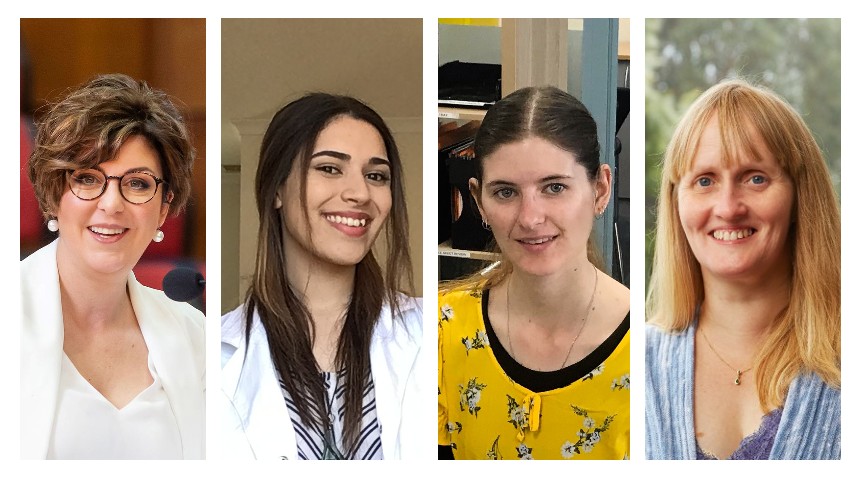
Scientists like Marie Curie, Janaki Ammal, Chien-Shiung Wu and Katherine Johnson changed the world for women and paved the way for others to make new discoveries.
Scientists like Marie Curie, Janaki Ammal, Chien-Shiung Wu and Katherine Johnson changed the world for women and paved the way for others to make new discoveries.
Despite their efforts, many people are still unaware of these remarkable women and their achievements, showing the genuine need to continue acknowledging women’s contributions to science.
The United Nations International Day of Women and Girls in Science aims to spread awareness, encourage full and equal access to science for women and girls, and recognise their role as agents of change in the past, present and future.
Murdoch students Brenna Karipa and Sariah (Bonnie) Eivers and researchers Dr Elaine Holmes and Dr Paola Magni give an insight into their careers and their journey from young girls to women in science.
Why did you choose science?
Psychology and Criminology student Brenna Karipa said that she didn’t pay much attention to science until later in high school when she began to gain interest in Human Biology.
“The idea of learning and understanding more about how things work in the world is what inspired me to study science”.
“I found the interaction between everything fascinating,” Miss Karipa said.
Sariah (Bonnie) Eivers chose to study a Bachelor in Medical, Molecular and Forensic Sciences at Murdoch.
“I have always been interested in knowing how things work and how to fix things but not necessarily the stereotypical science studies. Now, I cannot get enough!
“I had a few medical issues growing up that drew my interest towards medicine, but I decided to take a different path for a while. I wanted to work with cars.
“It wasn’t until I went to a free lecture by Dr Paola Magni on entomology that I realised that Murdoch was where I really wanted to be, and science was what I really wanted to do,” Miss Eivers said.
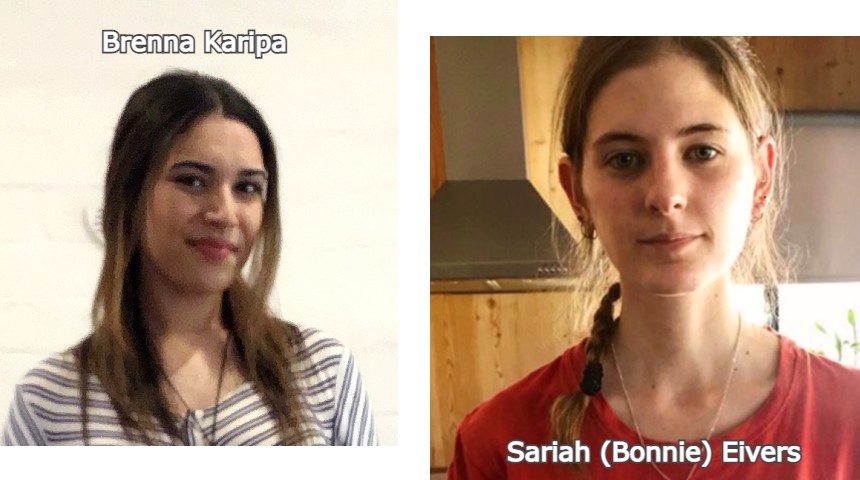
Dr Paola Magni, Senior Lecturer in Forensic Science, said she was always a curious child and learnt a lot from her grandparents.
“I think it was natural for me to be interested in science, mainly because it reminds me of the love and the passion given by my grandma (Nonna).
“She would make home-made soap with lard and caustic soda. She didn’t know the technical words and she didn’t have a scale or fancy instruments, but she knew what she needed and how to make incredible things,” Dr Magni said.
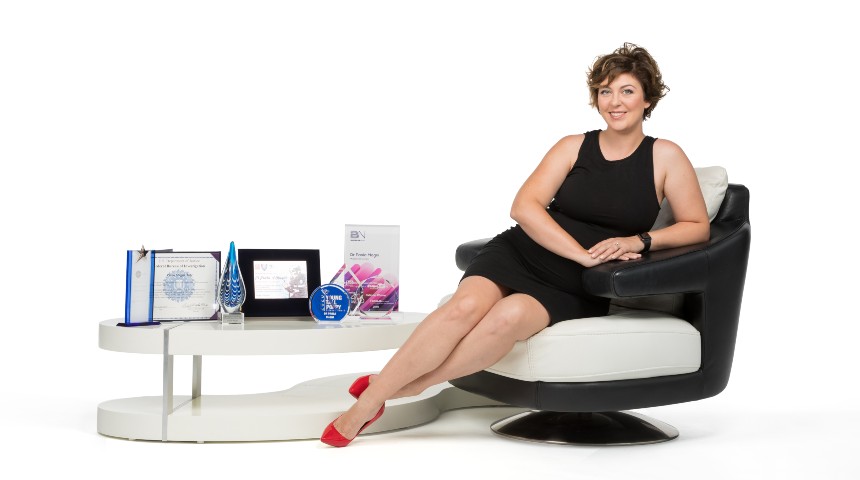 Dr Magni has won many awards throughout her career, her most recent accompanying her in the image above.
Dr Magni has won many awards throughout her career, her most recent accompanying her in the image above.
• 2021 – Finalist of Western Australian of the Year (Business category)
• 2020 - Women in Technology WiTWA Tech[+] 2020, as well as been nominated the ‘First Among Equals’
• 2020 – Tall Poppy Award
• 2020 – Business News 40under40, as well as winning the Intrapreneur Category Award
• 2020 – Sunday Times “Hot 100” people, places, trends and events that will shape and influence WA in 2020.
• 2019 – FameLab, Australian winner and 4th place in the global competition.
“I had been thinking and dreaming about going to university since primary school. I always envisioned myself with a white coat and my hero was Rita Levi Montalcini, a Nobel Laurate from my city, Turin.”
Dr Magni said the best day of her life was when she introduced herself to Rita Levi Montalcini, who said that Paola was also her twin sister’s name.
“That was the moment in which I felt the real connection with science and the sisterhood of women in science.”
Dr Magni’s research is about the complexity of a crime science, using clues from the nature present at the scene, in or on the victim or suspect.
“Insects help me to estimate the time since death or the abuse of drugs; microorganisms from the water can help me to pinpoint the causes of death; soil elements can indicate where the primary crime scene is.”
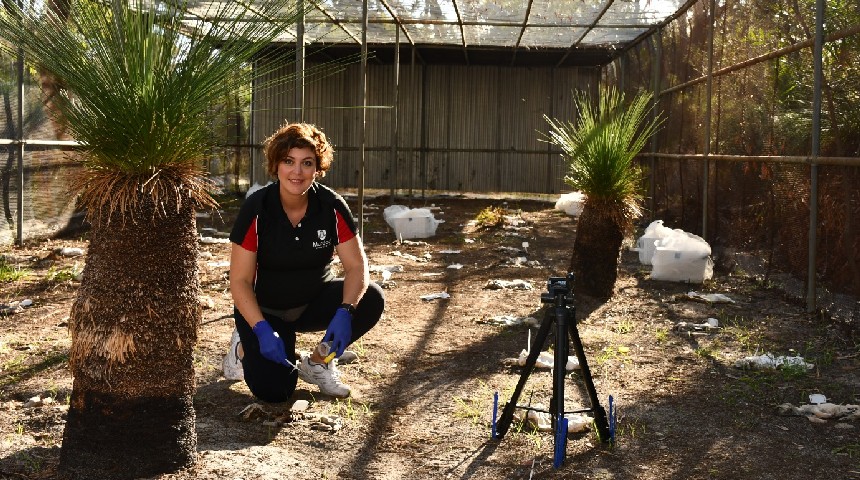
Dr Elaine Holmes, Australian Laureate Fellow and Centre Director Computational and Systems Medicine , said she was quite interested in English and the arts in school, but it was her father who inspired her to go into science.
“None of my family had ever gone to university so my parents were a big part of my journey, always encouraging me to push myself. My dad motivated me to try new things. I remember seeing him work hard at night school, so he could go into Engineering, which was a big inspiration for me.”
Dr Holmes said her interest in Toxicology began at university during her undergraduate studies in a Bachelor of Science, which inspired her to complete a PhD.
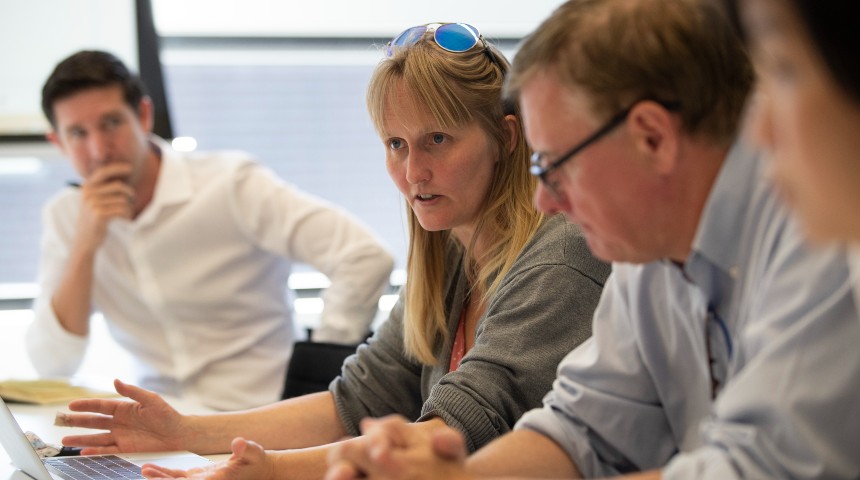
“My PhD was in the area of Toxicology, mainly because I was interested in poisons and the effect they had on the human body.
“I learned how to use analytical spectrometers to make chemical fingerprints of body fluids. Basically, every disease has a different chemical fingerprint, and you look for patterns of chemicals that can be used to diagnose a disease or to see how a person is responding to drug treatment,” Dr Holmes said.
“It was very much a technology-based approach, but there are so many different areas this technology can be applied to.
“For example, we are currently using the technology to investigate the different effects of COVID and to explore why some people are more affected than others,” she said.
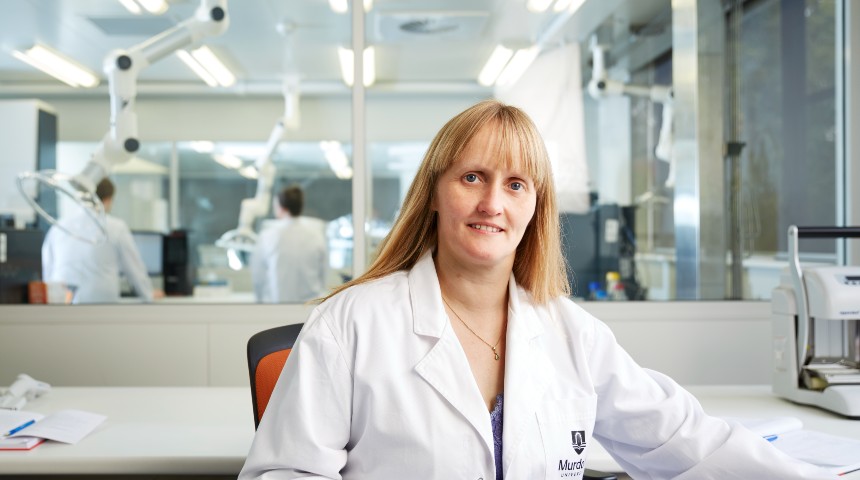
What do you love the most about your work?
Miss Karipa chose to pair Psychology and Criminology as the combination would provide a variety of career paths.
“I think what I love most about my degree is how broad it can be and the fact that I can apply it anywhere I go.
“There is so many different areas you can go into, and it is continually growing and developing.
“Furthermore, it helps me understand the world and people around me,” Miss Karipa said.
Miss Eivers has a similar sentiment in her double major in Forensic Biology and Toxicology and Genetics and Molecular Biology within her bachelor.
“I love that it opens so many doors. From my degree I have countless opportunities to do whatever I want to do.”
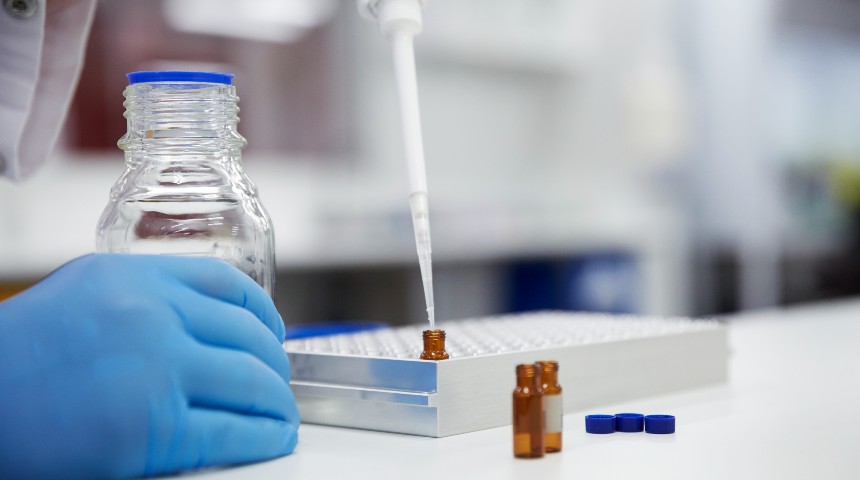
Dr Magni said that every crime is different and so new research and ideas are always needed.
“I love looking for creative ways to investigate a crime using clues from nature.
“For example, marine creatures found in shoes displaced in the ocean or evidence of algae left on clothes after a wash in the washing machine, even insects in bodies concealed in suitcases or wheelie bins,” she said.
Dr Holmes said her career in toxicology can be applied to a variety of areas and encourages collaboration with different experts.
“I love that my work makes a real difference. You can help people learn about new mechanisms and diseases, and the academic challenge is similar to doing lots of jigsaw puzzles at the same time.
“You’re looking for answers in complex data and trying to find clever solutions for finding patterns in the data that relate to health,” Dr Holmes said.
What opportunities have you received along your journey?
Miss Karipa has gotten involved in many opportunities throughout her studies, helping her to gain experience and continue her learning.
“As a student ambassador, I get to share my knowledge and experience with future students and inspire them to be just as curious about the world. The role led me to a job with Health Science Hub, training students in their Cert IV Psychology (Mental Health) and giving them an alternative pathway into university.”
Miss Karipa has volunteered within the Juvenile Justice system working directly with juvenile offenders, which she says has greatly inspired her career aspirations.
“I am currently doing a research project analysing the behaviour sequence of juvenile offender in WA, looking into their life histories and then the types of crime they go on to commit,” Miss Karipa said.
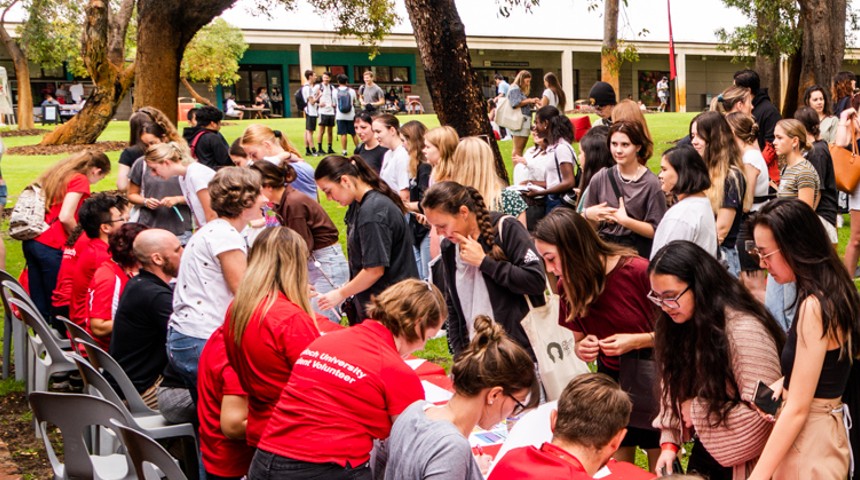
Miss Eivers said the ability to network and meet professionals through her studies has been a fantastic opportunity to further her career.
“As a student, I get the opportunity to study under many great professionals and there are clubs and societies which I can join and network through.”
Miss Eivers has been a part of the prestigious Murdoch Student Emerging Leaders program, strengthening her leadership and teamwork skills while giving back to the community through a hands-on real-world project.
Dr Magni said she is passionate about preparing the next generation to become critical thinkers.
“I have had the opportunity to bring forensic science students overseas to learn about criminal investigation in mixed groups and in other environments.
“I have also received funds to develop innovative research and technologies, like VR for forensic training.
“However, the greatest opportunity I've had is talking about the wonders of science and forensics, and becoming a role model for the next generation,” Dr Magni said.
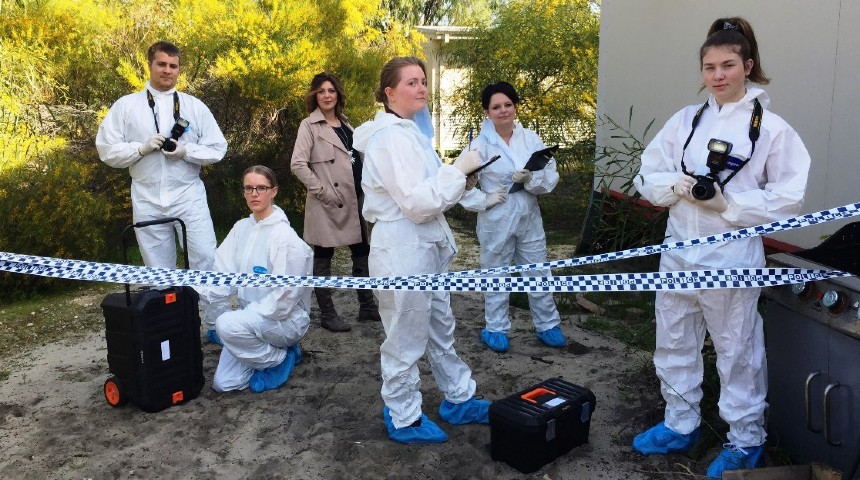
Dr Holmes has been awarded an Australian Research Council Fellowship to study the role of gut bacteria in healthy ageing.
“We just kicked it off this year (2022). It’s looking at the bacteria in the gut and the difference in how it changes in people who are healthy versus not so healthy. We are also looking at the role of environmental factors, like exercise and diet, to find the best way to keep our gut bacteria happy.”
What would you say to young girls to encourage them to consider studying science?
“Free your think, the main thing you need to succeed in science is to be curious,” said Miss Karipa, Psychology and Criminology student.
“So many women in the sciences have made the greatest contributions to what we now know. Where would we be without women in science?” said Miss Eivers, Medical, Molecular and Forensic Sciences student.
“A white coat always looks great on you,” said Dr Magni, Senior Lecturer in Forensic Science at Murdoch.
“I would say don’t let anything stop you. Back when I started, I was a single mum and people were telling me I couldn’t do it, but that’s rubbish. Believe in yourself and just go out there and do it,” said Dr Holmes, Centre Director Computational and Systems Medicine at Murdoch.
Science courses at Murdoch
Science can refer to many different study areas, including but not limited to:
- Agriculture
- Animal Health
- Animal Science
- Chiropractic
- Conservation and Wildlife Biology
- Engineering
- Environmental Science and Management
- Forensics and Toxicology
- Laboratory Medicine
- Marine Biology
- Molecular Biology
- Nursing
- Psychology
- Sport and Exercise
- Veterinary